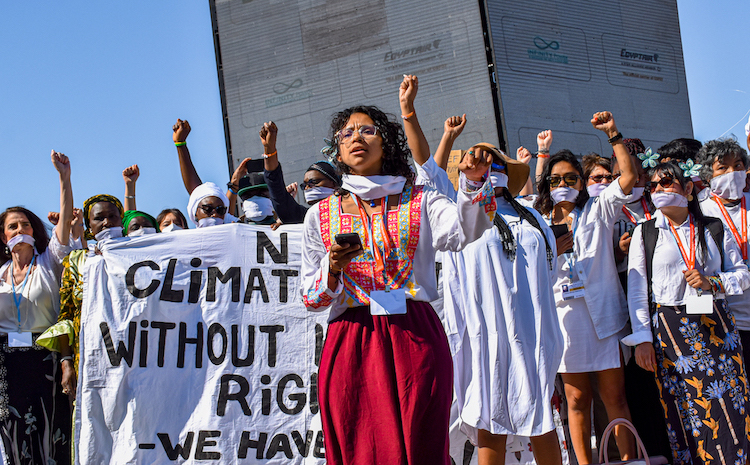By Lisa Vives, Global Information Network
NEW YORK | SHARAM EL-SHEIKH, Egypt (IDN) — More than 20 years since the first UN climate conference was held, less than five women have been climate conference presidents out of 110 heads of state and government.
Women are now calling for greater representation at the next conference to be held next year in the United Arab Emirates.
Last year the percentage of women sent from participating countries was around 37 per cent, while over 70 per cent of the total speaking time by delegates was taken up by men, according to the United Nations Foundation.
To highlight their demands, a photo of global leaders attending this year’s conference in Sharm El Shaikh, Egypt, was displayed at the conference hall and captioned: “Notice Anyone Missing?”
While progress seems to have been made by countries sending female representatives as part of the delegation, Elise Buckle, co-founder of She Changes Climate, said it is disappointing to have less than 10 of the about 110 heads of state who attended the conference being female.
“When we talk about representation, it is about more than numbers; it is meaningful representation and inclusion,” said Nada Elbohi, an Egyptian feminist and youth advocate, in a press release. “It is bringing the priorities of African women and girls to the table.”
“There is no climate justice without human rights,” said Mara Dolan with the Women’s Environment and Development Organization (WEDO). “It’s a common misconception that women’s groups only care about getting the word ‘women’ on the agenda. … We come to this conference looking for full recognition and realization of human rights. And gender justice is one piece of that.”
In 2021, over 200 environmental and land defenders were murdered, according to Global Witness, a non-profit that exposes the role of industries like mining and logging and how they commit human rights abuses.
At an event prior to the conference, participating climate activists included Nada Elbohi, Salimata Ba, Sylvia Diamond Dorbor, Zainab Yunusa, Pricsilla Achakpa and Gertrude Kenyangi.
Ms Yunusa observed: “80% of climate refugees are women. Displacement affects everyone, but with women and girls in Africa it affects us the most.”
“Let us make sure women, in their diversity, have an equal say in decisions around climate policy,” said UN Women Executive Director Sima Bahous. “They must be at the heart of climate action.” [IDN-InDepthNews — 22 November 2022]
Photo source: Pesticide Action Network – North America


